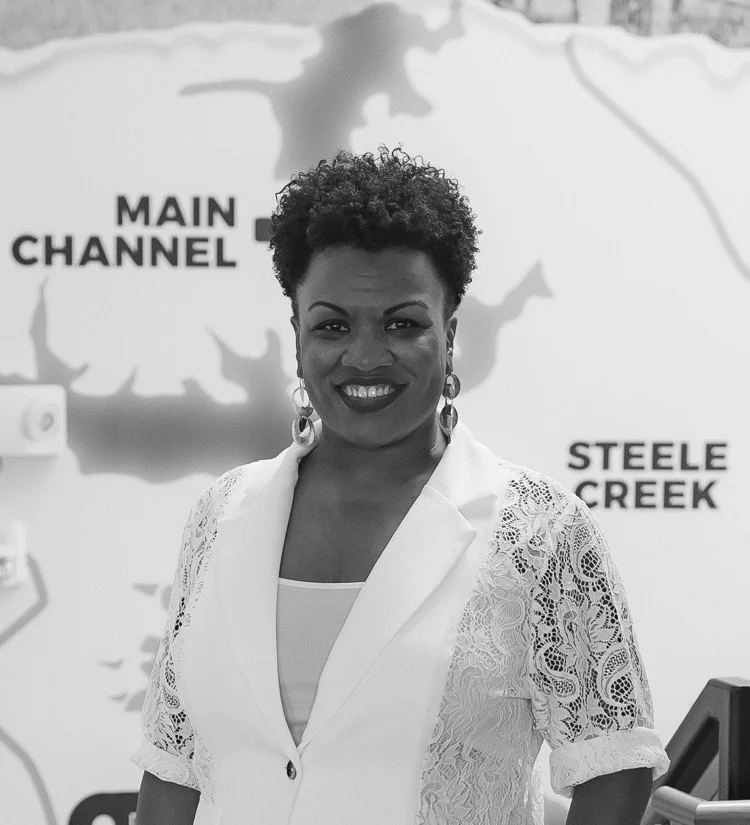Beyond Resilience: Natalie Carter on Mental Fitness and the Future of the Legal Profession
By Daniel Abramoff
At The Counsel House podcast, we explore the human side of law by sitting down with professionals who are transforming the field through leadership, vulnerability, and innovation. In our June 2025 episode, host Daniel Abramoff sat down with Natalie Carter, Associate General Counsel at Duke Energy, to discuss one of the most underappreciated but essential topics in legal practice: mental fitness.
Natalie brings more than just a legal résumé to the conversation—she brings a lived experience that reshaped her perspective on success, purpose, and wellness. From a devastating personal loss to becoming a voice for healing and resilience, Natalie has built a framework for mental fitness that is changing how lawyers care for themselves and others.
From Tragedy to Transformation
Natalie’s journey began with unimaginable heartbreak. In 2016, she went into labor with her second child, Ethan, only to discover upon arrival at the hospital that his heart had stopped. “No movement,” the doctor said—words that would mark the beginning of a long and painful journey of grief.
Delivering her stillborn son through a 17-hour labor and an emergency C-section, Natalie recalls being “shattered, broken beyond repair.” What followed was not a linear recovery, but a gradual commitment to what she would later come to call “mental fitness.”
“I didn’t wake up one day and say, ‘I’m going to heal,’” she says. “I started healing so my living son wouldn’t grow up thinking he was never enough.”
That promise set her on a path to rebuild her life—and in doing so, help others rebuild theirs.
Finding Strength Through Community
One of the first steps in her healing process was finding others who had experienced similar loss. She discovered Kindermourn, a Charlotte-based support organization for parents who have lost children. There, she found a community of “empty arm parents,” and began sharing her grief with others who truly understood.
“Isolation is not a mental fitness hack,” Natalie emphasizes. “You want to isolate, but community is what saves you.”
The power of shared experience became a cornerstone of her coaching philosophy. Whether it’s grief, burnout, or professional pressure, Natalie believes the first step to resilience is connection.
Redefining Success After Trauma
Returning to work after four months of maternity leave, Natalie faced the dissonance of professional expectations and personal grief. “The legal profession is high-stress even on your best day,” she says. “How do you show up when you’re still reeling from trauma?”
That first year back wasn’t her strongest professionally—and she’s honest about that. But her experience gave her insight into how many lawyers are quietly suffering.
“We are human first,” she says. “And we can’t meet our ethical duties to our clients if we’re not mentally fit.”
Mental Fitness vs. Mental Health
Natalie distinguishes between mental health and mental fitness: “Mental health is seeing a therapist when something is wrong. Mental fitness is the daily training that builds resilience so you can stay well.”
She compares her work to that of a personal trainer for the mind. Just as physical trainers focus on mobility, strength, and endurance, mental fitness coaches focus on flexibility, stamina, and emotional resilience.
“When the storm hits, it’s the habits you’ve already built that carry you through,” she says. “You can’t start training in the middle of the storm.”
Performance and the Cost of Neglect
Natalie warns that neglecting mental fitness has consequences beyond personal burnout. It affects professional performance. “The clearer your head, the better your judgment,” she says.
She challenges the legal field to normalize conversations around therapy, meditation, breathwork, and stillness—not just exercise and diet. “Mental clarity isn’t optional in law; it’s a prerequisite.”
A Culture Shift in the Making
Today, Natalie is a coach helping professionals develop mental resilience through structured, holistic strategies. She believes the legal industry is beginning to shift, thanks in part to more open conversations and leadership from within.
Her message is especially timely for young lawyers, women of color, and first-generation professionals navigating stress in silence.
“Life hits everyone hard. Mental fitness is about being ready for when it’s your turn.”
We’re incredibly grateful to Natalie Carter for joining The Counsel House and for her courage, authenticity, and practical wisdom. Her story is a powerful reminder that healing and high performance are not mutually exclusive—they can be intertwined.
If you’re a legal professional with a story to share, or you know someone whose experience could inspire others, we’d love to hear from you. Reach out to us at [insert contact info] to be a guest on the show.
Until next time, take care of yourself—mentally, emotionally, and professionally.






